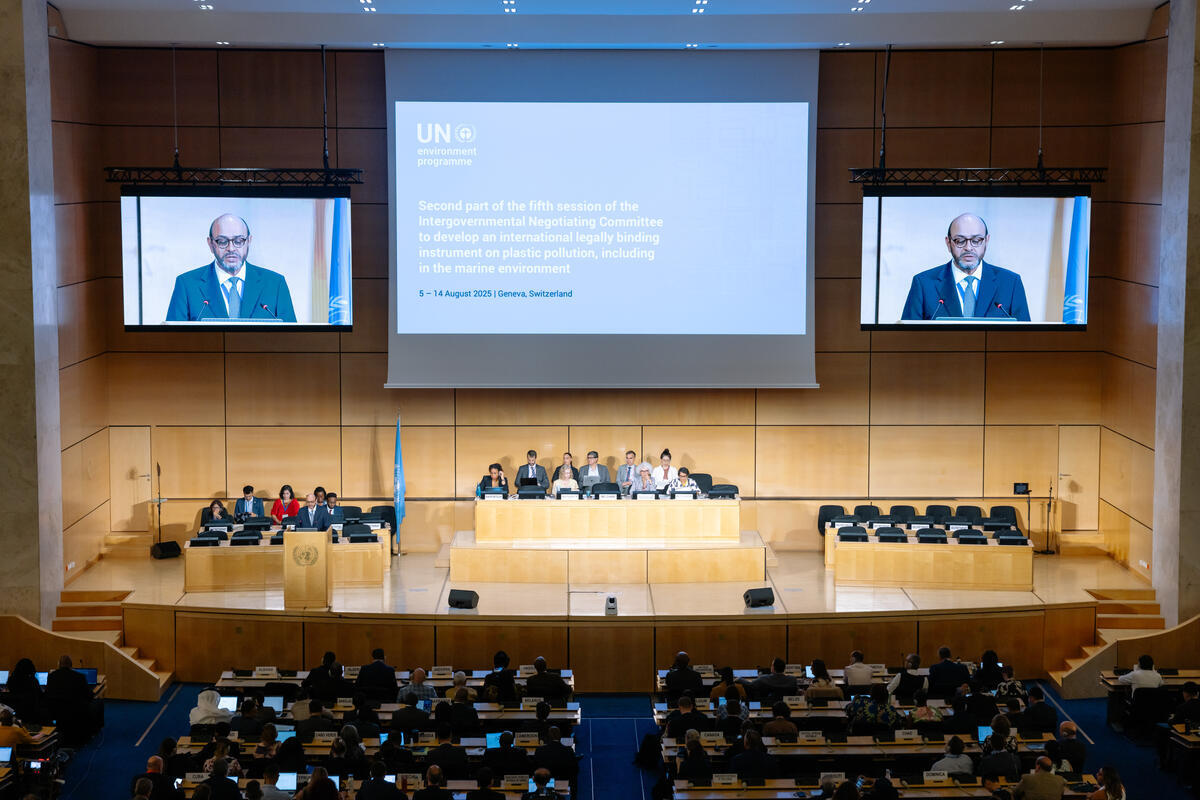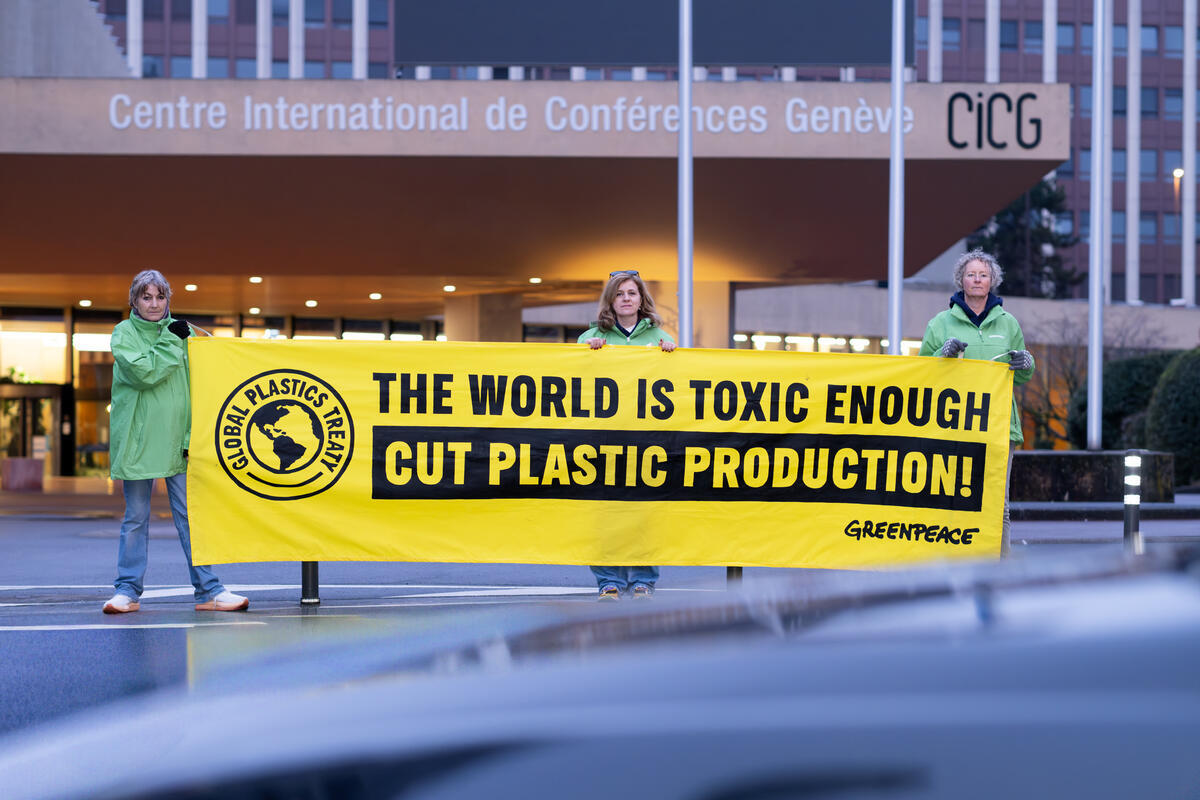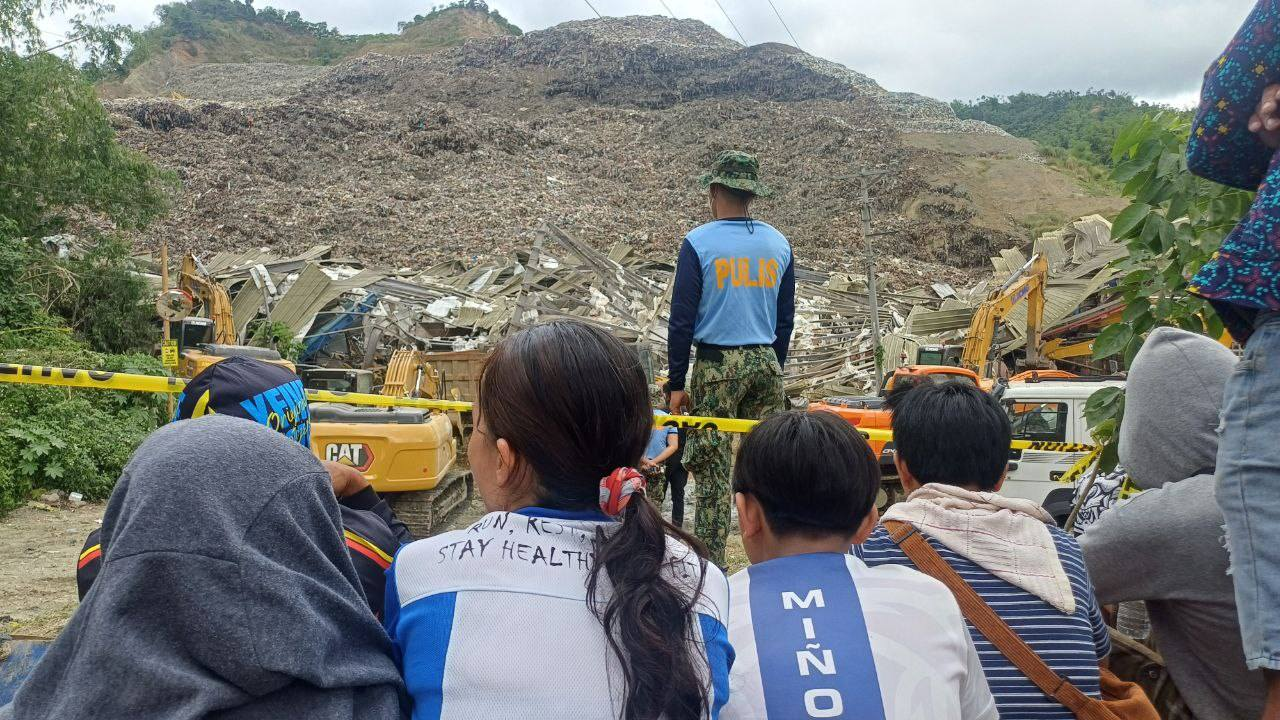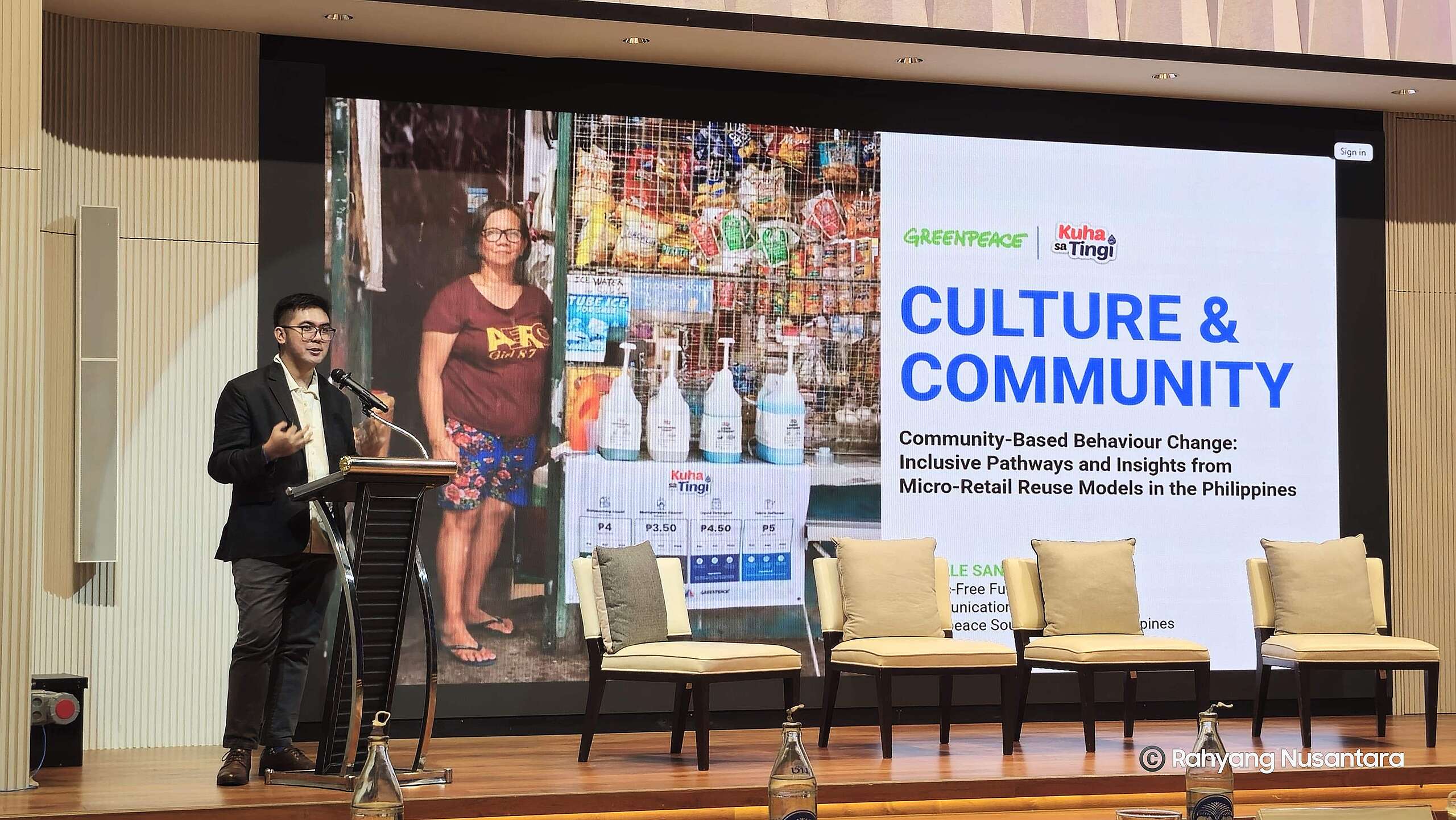Weak treaty would be a ‘betrayal,’ advocates warn

11 August 2025, Geneva, Switzerland/Quezon City, Philippines — With just three days left before the final round of negotiations for a Global Plastics Treaty comes to a close in Geneva, Switzerland, civil society groups, scientists, and community representatives warn that talks are veering off course, risking a weak agreement that fails to protect people and the planet from plastic pollution.
Greenpeace Philippines Zero Waste Campaigner Marian Ledesma, in Geneva for the negotiations, raised alarm over mounting industry influence and the attempts of oil-producing states to water down the treaty’s scope, focusing only on waste management and excluding measures to cut plastic production and address health impacts.
“We are running out of time,” Ledesma said. “A watered-down treaty that ignores plastic production cuts would be a betrayal of the millions of people counting on their leaders to protect health, human rights, and the environment. A weak treaty will be nothing more than a fig leaf for polluters. World leaders promised ambition, and ambition means tackling the problem at its source, not passing the burden to communities already drowning in plastic.”
Concerns over undue influence have grown as reports show hundreds of fossil fuel and petrochemical lobbyists attending past sessions—far outnumbering health and environmental experts. Advocates say this imbalance threatens to derail the process and weaken the treaty at the expense of people and the planet.
In the Philippines, over 80 civil society organizations, academic institutions, and businesses have urged the Department of Environment and Natural Resources (DENR) to align with countries pushing for ambitious production reduction targets and upstream solutions such as reuse and refill systems. In response, the DENR has affirmed its support for a full life cycle approach to plastics—addressing pollution from extraction to disposal—echoing calls from scientists and advocates worldwide.
“This Global Plastics Treaty is a way forward for us to solve our situation on waste,” said Atty. Janice Regoso-Pammit, Chief of the Legal Division and Concurrent Board Secretary of the Pollution Adjudication Board of the Environmental Management Bureau. “Issues on health, product design, financial mechanism, release and leakages, waste management, the whole life cycle of plastics, the extended producer’s responsibility, and the transparency and traceability are key points that the Philippines submitted as our conference room paper for this INC 5.2.”
“Supporting a full life cycle approach internationally should mean adopting the same ambition at home by cutting plastic production, phasing out single-use plastics, and building strong reuse systems in the Philippines,” said Ledesma. “Anything less would betray the communities already suffering the impacts of plastic pollution.”
The groups continue to call on the government to:
- Back a global target to cut primary plastic production.
- Support the phaseout of common single-use plastics and toxic chemicals.
- Establish zero-waste systems like reuse and refill.
- Protect health through programs that uphold environmental rights.
- Ensure inclusive consultations with youth, small businesses, and affected workers.
- Push for fair financing and trade rules.
- Ground the treaty in human rights, just transition, and sound environmental policy.
###
NOTES TO EDITORS:
- You may access the recording of our INC 5.2 press conference titled, “INC 5.2 at Halftime: Progress and Pitfalls” via this link. Panelists include civil society representatives and scientists participating in the Plastics Treaty negotiations in Geneva, as well as community representatives from plastic-impacted sectors.
- You may download INC 5.2 photos and videos on our media library.
- You may read our joint statement sent to DENR via this link.
For more information and interview requests, please contact:
Karl Orit
Communications Campaigner
Greenpeace Southeast Asia – Philippines
[email protected] | +63 919 457 1064 (Viber & WhatsApp)
STATEMENTS FROM ORGANIZATIONS:
“A study released last year highlighted that plastics contain more or less 16,000 chemicals, which are used in everyday plastics. Of these, we only know information about 4,000 of them. We already know that these are hazardous to the environment and human health. For the treaty to really address the plastics problem, we have to look at it from a chemical standpoint, too.”
—Jam Lorenzo
Deputy Executive Director, BAN Toxics
“This is a treaty on health and environment, and not a treaty on industry profit. World leaders here at Geneva must stay true to the vision of the UNEA 5/14 resolution back in 2022, which is to protect our environment and end plastic pollution for good.”
—Aileen Lucero
National Coordinator, Ecowaste Coalition
“Plastic pollution occurs along the full life cycle of plastics, starting at extraction and production. This is something we’re not hearing sufficiently or strongly enough at the negotiations. This is not a waste management treaty. The full life cycle starts at extraction.”
—Trisia Farrelly
Coordinator, Scientists’ Coalition for an Effective Plastics Treaty
“Ang aming pangarap bilang mga mangingisda ay malinis na kapaligiran at karagatan. Nakikiisa ang Pangisda Pilipinas sa panawagan para sa isang kasunduan o batas na magre-regulate nang husto at magbibigay ng parusa sa mga lumalabag sa paggamit ng plastic na nagdudulot ng pagkasira ng ating kalikasan.”
—Pablo Rosales
President, Pangisda Pilipinas
“As young people, we are among the most vulnerable. If nothing changes, we’ll be the ones inheriting this toxic legacy. The Global Plastics Treaty is a chance to end this. The treaty must be bold and binding, with a cap on plastic production, a phase-out of single-use and hazardous plastics, and strong zero-waste systems.”
—Enrique Beren
Secretary General, Young Bataeños for Environmental Advocacy Network



